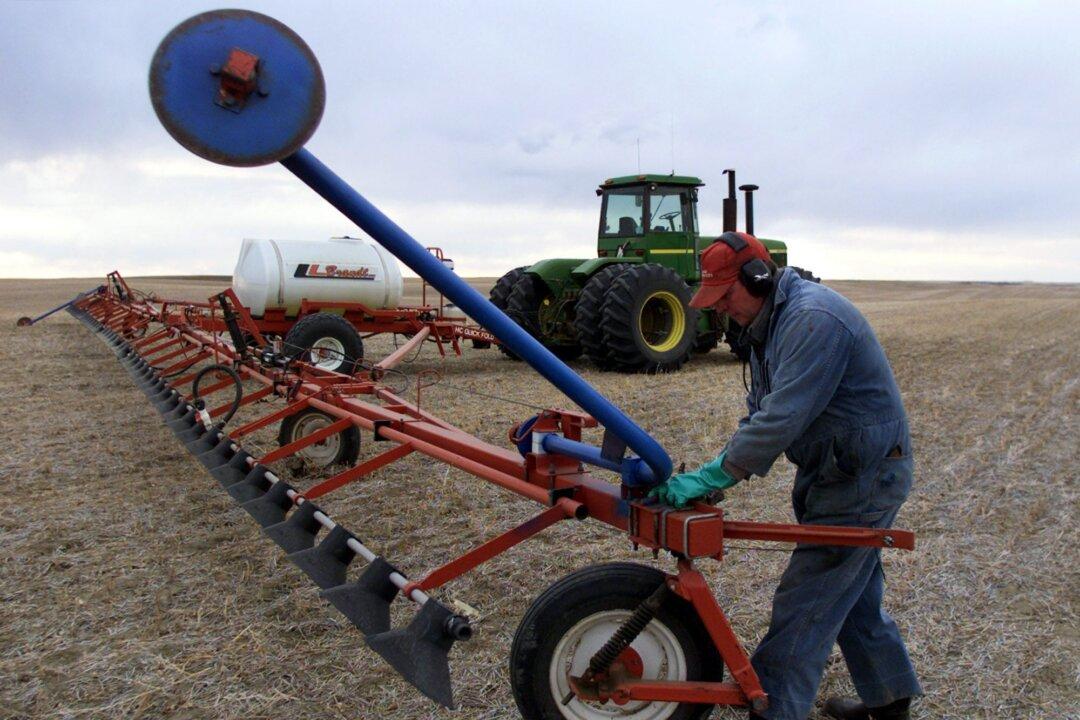Farmers in Saskatchewan, a province that has nearly half of Canada’s arable land, say production will fall sharply if they are forced to use less fertilizer and pay increasingly high carbon taxes on fuel.
The government is moving ahead with its goal, first announced in December 2020, to reduce absolute levels of greenhouse gas emissions from fertilizer use by 30 percent below 2020 levels by 2030. Specifically, it aims to reduce nitrous oxide emissions associated with synthetic nitrogen fertilizer use.





